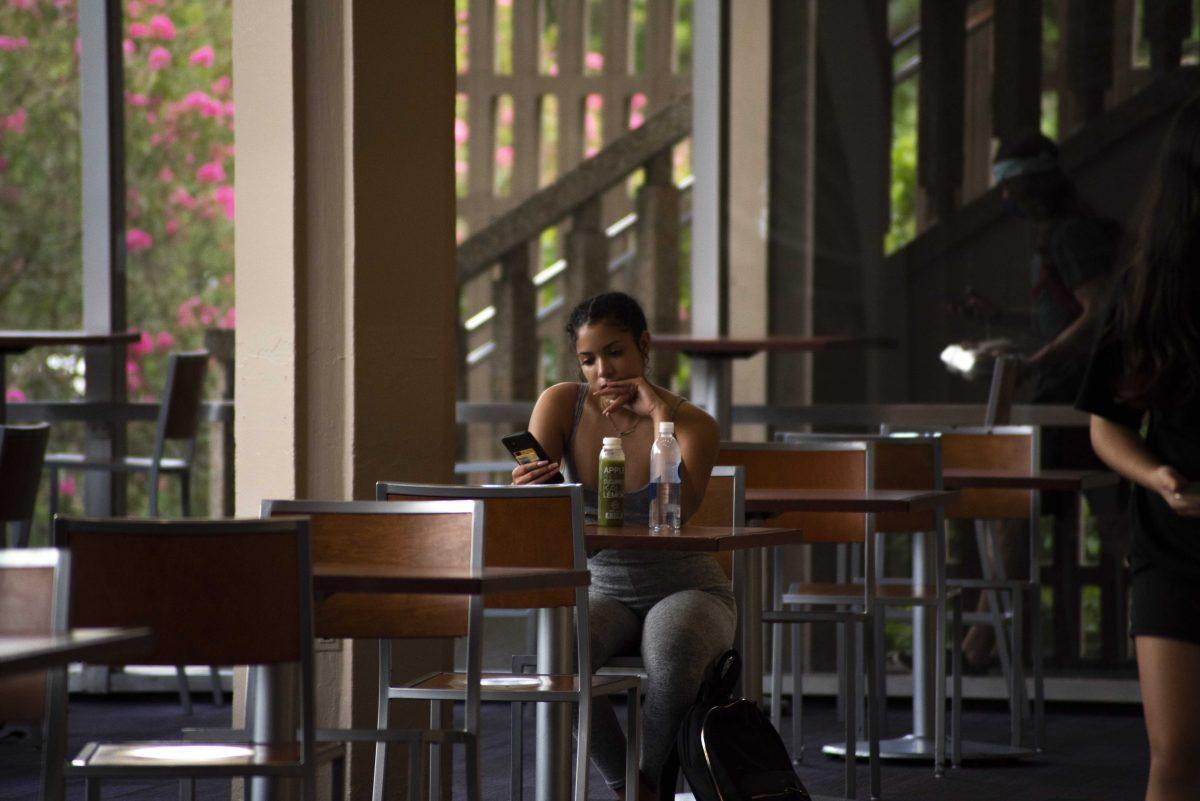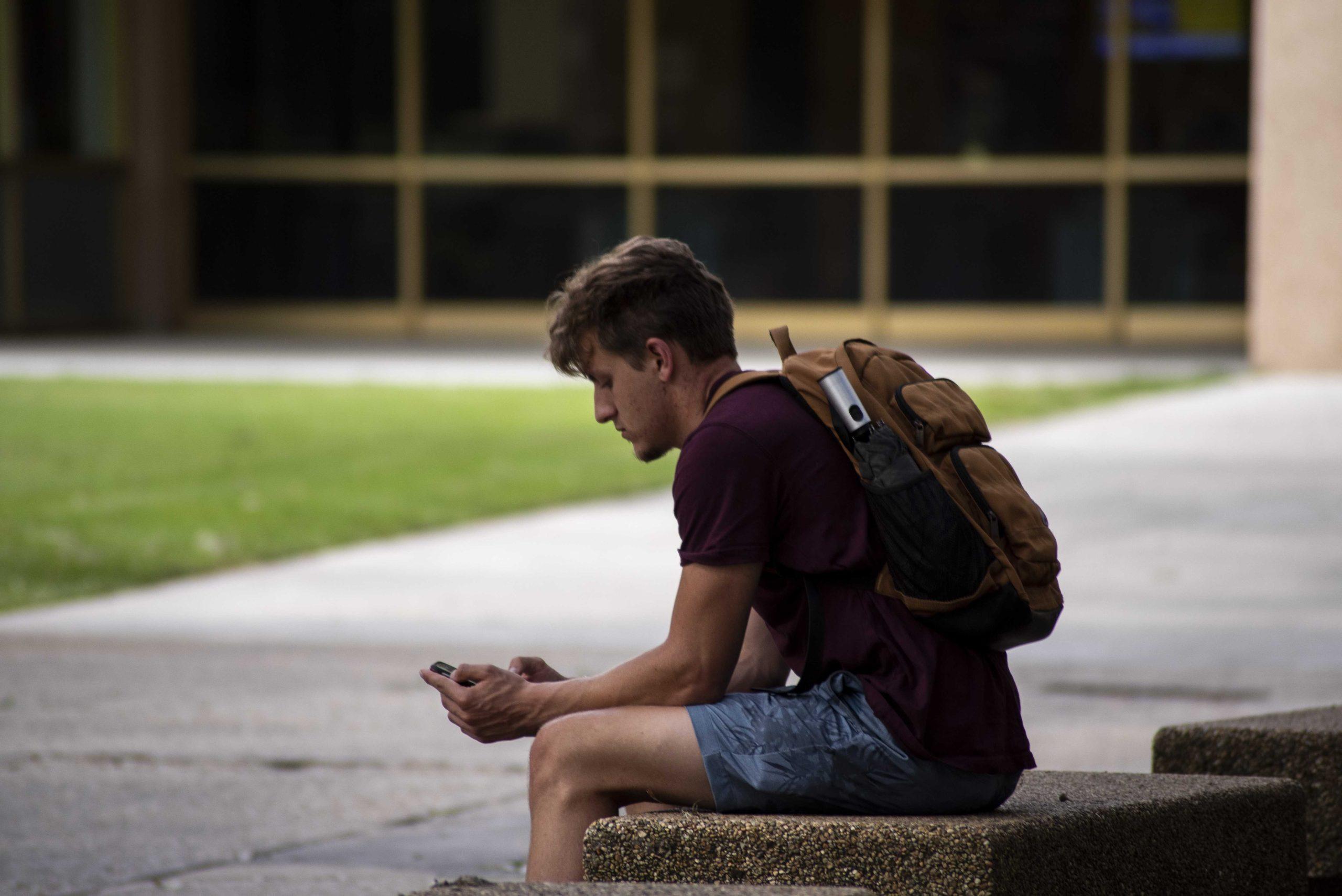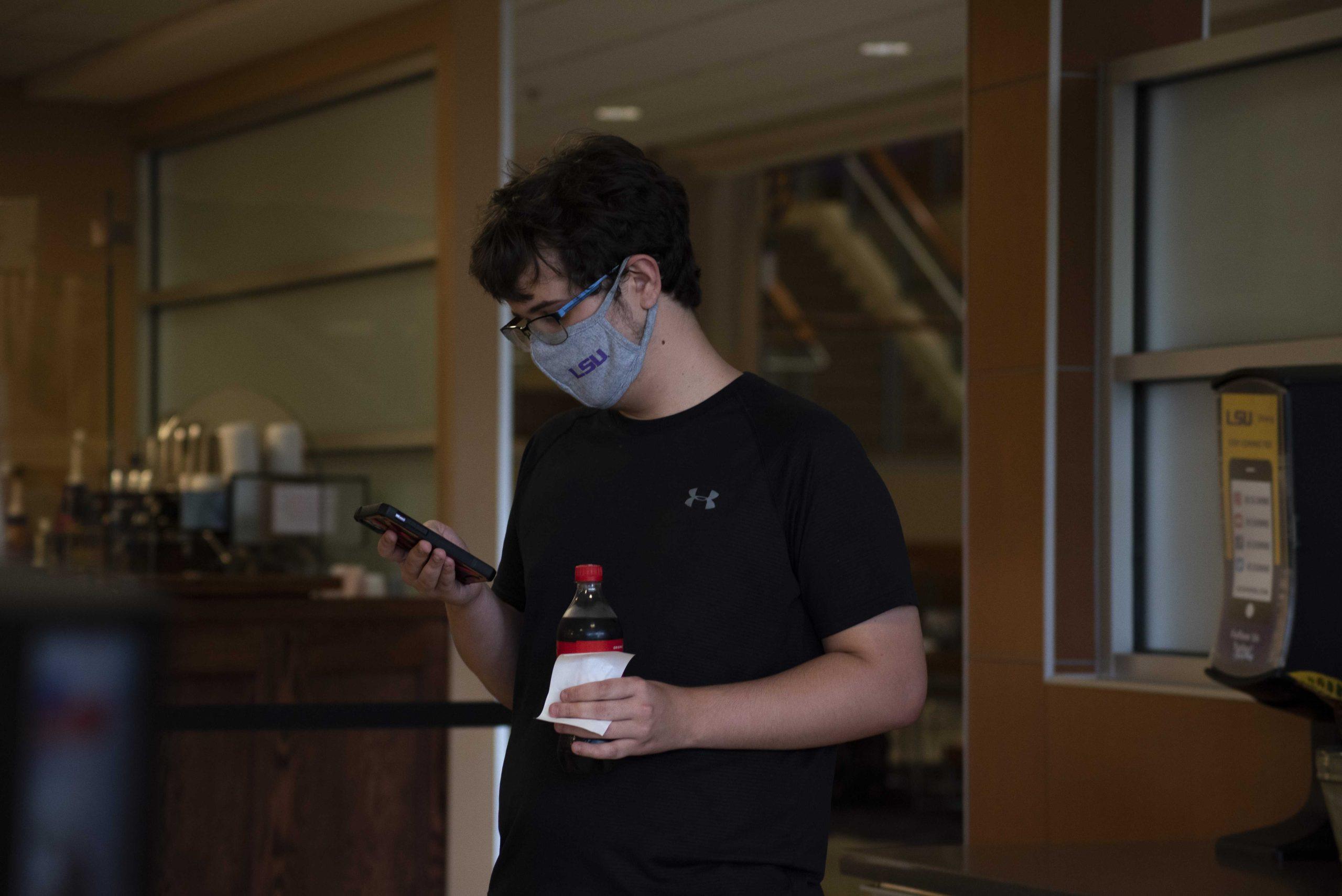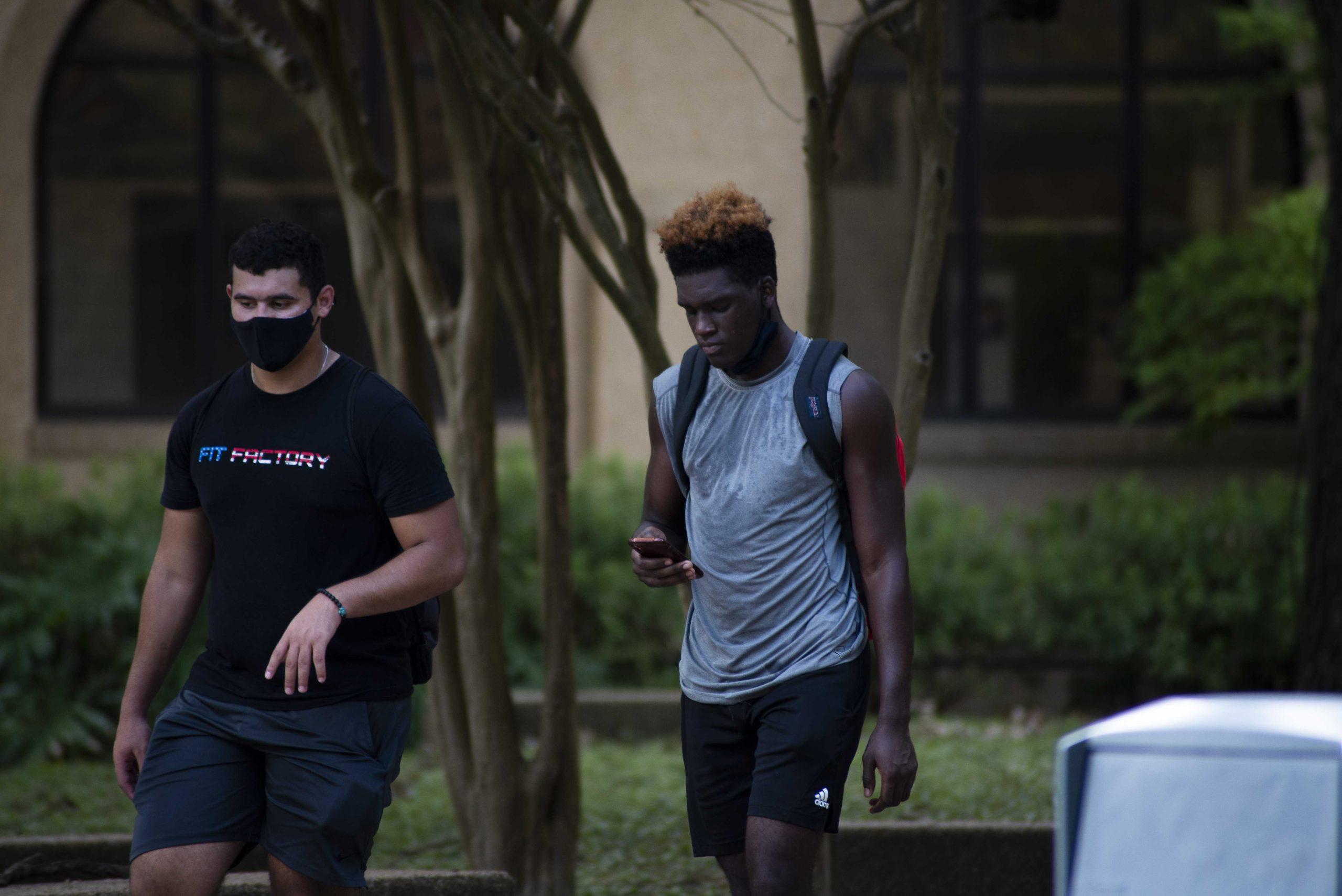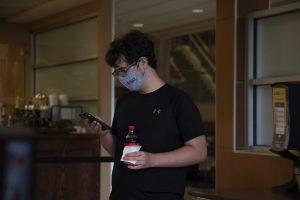In 2011, only 35% of Americans owned a smartphone, according to a 2019 survey conducted by Pew Research Center. Contrast that with the 81% of Americans who owned a smartphone in 2019, and the increasing presence of smartphones in society is evident.
Despite the numerous ways these technologies have benefited society, there are concerns about the potential side effects of people being attached to their phones, and the amount of time people spend scrolling through social media.
Some LSU students, including mass communication freshman Jillian Coco, said decreasing screen time could be beneficial.
“Instead of focusing on my phone, I could be focusing on more important things like schoolwork or spending quality time with friends and family,” Coco said. “I try to control my screen time by setting time limits on certain apps I use a lot, but I honestly think I could do better.
History senior Evan Grantham shared a similar sentiment.
“I definitely do see some of the time I spent on my phone as problematic, as it leads me to procrastinating on assignments or or housework I could be getting done,” Grantham said. “I also like to watch videos before I try to fall asleep, which I think makes me stay up later than I would without it.”
Political science freshman Ashlyn Anderson said her phone use is a problem because it causes her not to pay attention to classwork. She said she uses it as “an escape not to do work”
“When I study, I take breaks that usually are supposed to be 10 minutes but then turn into 2 1/2 hours,” Anderson said.
RescueTime, an app developed to help users track their screen time, found that people spend 3 hours and 15 minutes each day on their phones on average. Another analytics company, Zenith, found similar results, with an average of 3 1/2 hours each day.
Mass communication freshman Luc Piccard said he tries to limit his screen time.
“I try not to mindlessly scroll, but that definitely wastes a lot of time if I do,” Piccard said.
A 2017 review of research exploring the links between mobile technology and cognitive functioning said that studying the long-term effects of smartphone usage on cognition presents many barriers.
“Smartphones have become so ubiquitous that it is nearly impossible to employ true experimental methods with random assignment into different technology exposure/access groups,” the paper said. “As a result, much of the literature consists of quasi-experimental and correlational studies, from which strong inferences cannot be drawn.”
The research paper examined over 40 papers exploring links between moderate mobile technology use and attention, memory and delay of gratification.
“Although the research concerning the potential cognitive impacts of smartphone technology is growing, the results remain contradictory and inconclusive.”
This doesn’t negate legitimate concerns surrounding smartphone usage, especially when a person’s smartphone habits are interfering with their day-to-day functioning. Associate Director of LSU’s Mental Health Center Raime Thibodeaux said students can tell if their phone use is negative by evaluating the time they spend on their phones and how it impacts them.
“Ask yourself, ‘is this helping me; is this having some downside?’” Thibdoeaux said.
Mass communication freshman Maddie Pistorius said she has noticed the downside of social media in her life. She said she would sometimes rather go on apps than go outside and do physical activity.
“I feel like using social media makes you lazier and less motivated,” Pistorius said.
Coco described social media as a ‘highlight reel’ that could be harmful to people’s confidence.
“Many people compare their lives to the lives of people they see on social media, which can cause many problems and self-esteem issues,” Coco said.
Thibodeaux said the “highlight reel” of social media can become problematic for students’ mental health when they’re unable to separate what they see on social media from reality.
“What people post on social media is carefully selected and placed pieces of what they want people to see,” Thibodeaux said. “It can give a false sense that other people’s lives are more perfect or more beautiful when that may not be the case. In some ways, it can distort authenticity and spending too much time in that headspace can be potentially harmful for some.”
Sports administration junior Austin Ash said social media is harmful because it is disconnected from reality.
“I don’t like using Snapchat as much because in-person interactions are more meaningful to me,” Ash said. “People are addicted to their phones. If you ever just go eat with a group of friends and it’s quiet, everyone will be on their phones.”
Grantham described social media as a “double-edged sword.”
“On one end, it allows you to keep up to date with current events, and friends and family, but there is a very fine line between having a social life and having a social media-driven life,” Grantham said. “I’ve seen people get upset because they didn’t get a certain number of likes on an Instagram post; it makes them feel less relevant, and as if people don’t care about them.”


